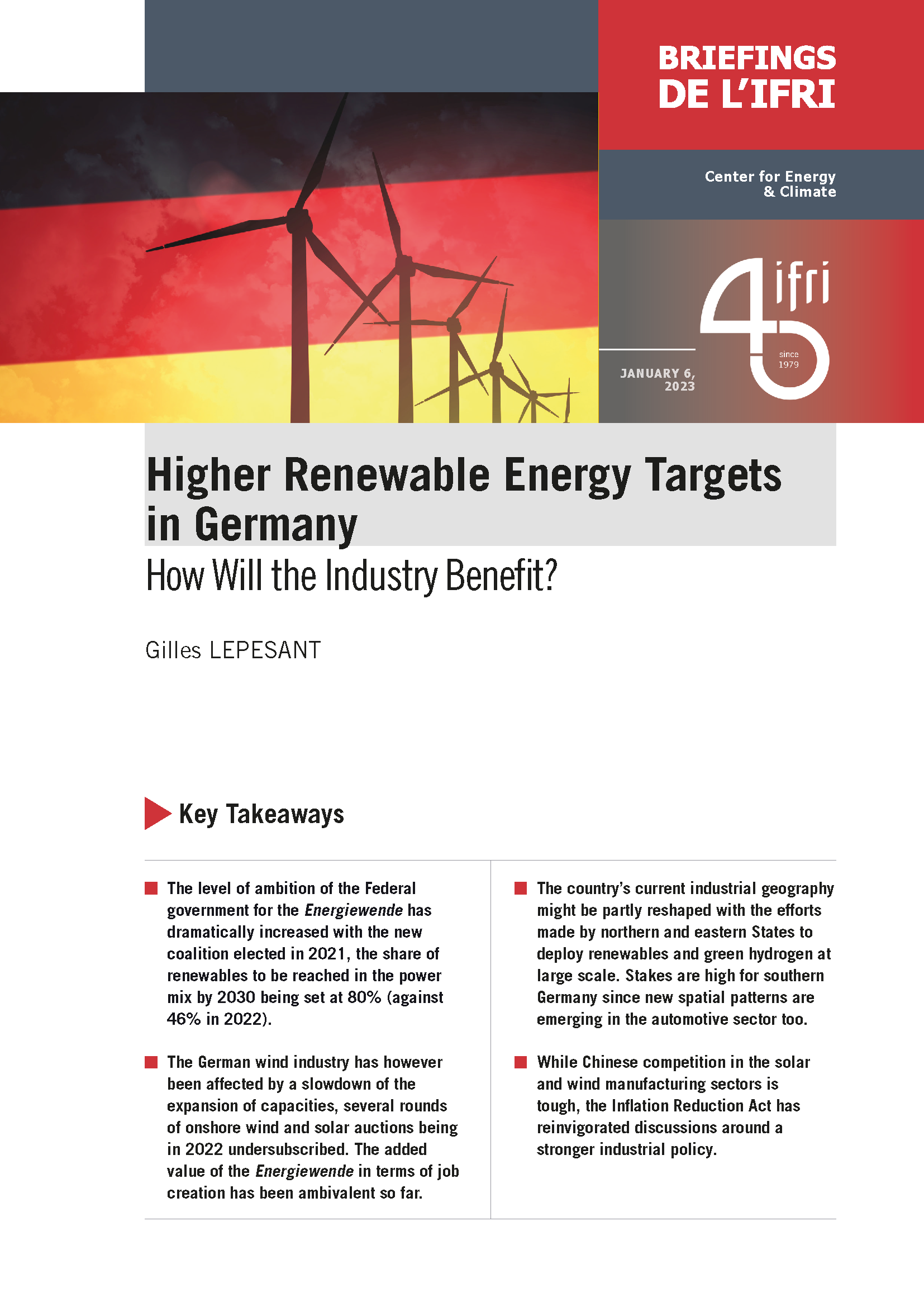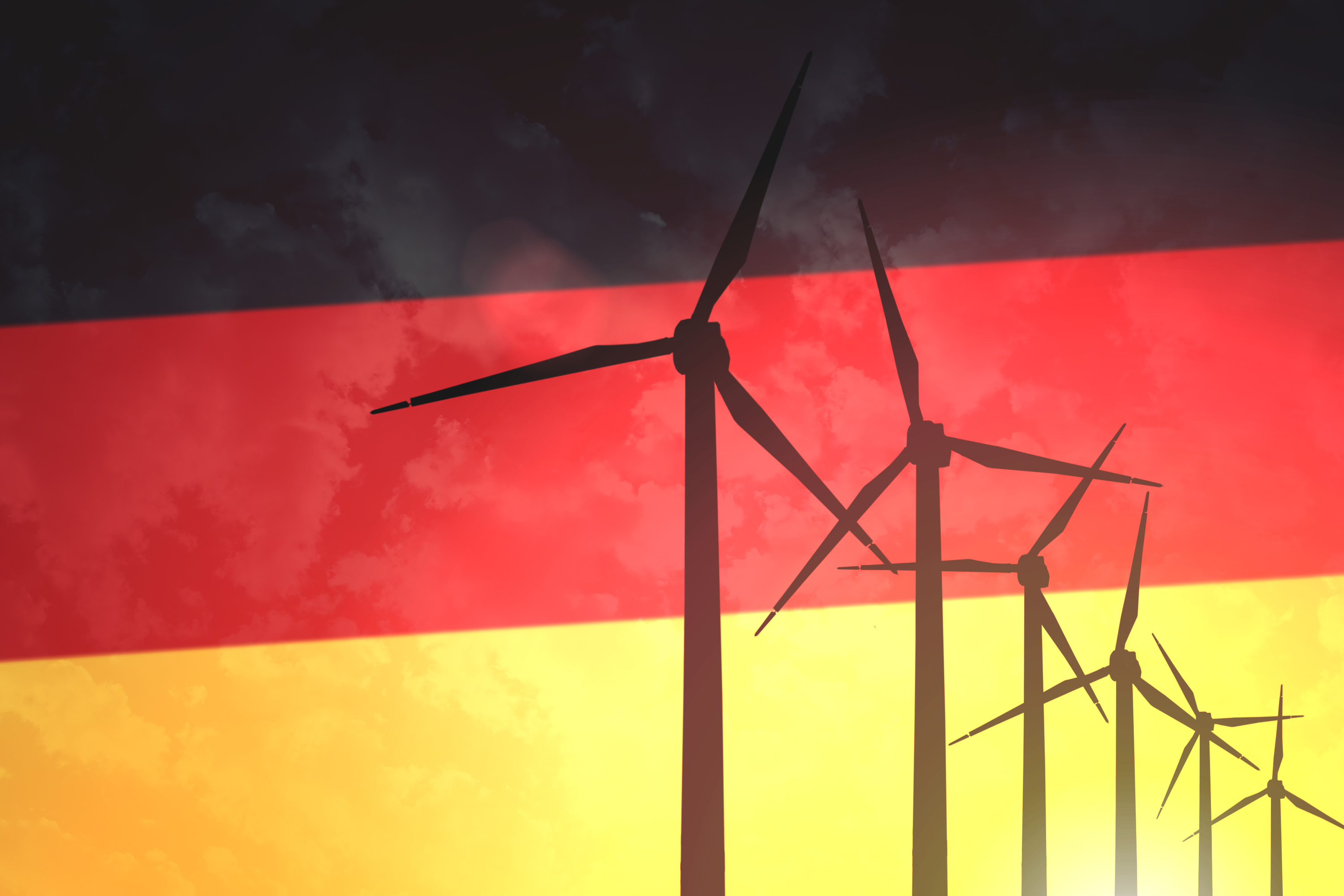Higher Renewable Energy Targets in Germany: How Will the Industry Benefit?

“Deutschland – Einstieg in die Deindustrialisierung?” – “Germany, the beginning of deindustrialisation?” asked the German economic newspaper Handelsblatt in the context of the spike in energy prices that has put at risk thousands of companies across Germany in 2022. Whereas some sectors such as steel, glass and chemicals have been seriously hit, the manufacturing industries operating in the areas linked to the energy transition (such as renewable energies and hydrogen production) should benefit from decisions taken to reach climate neutrality.

Will the German industry benefit from the ambitious commitments agreed by the new coalition? The boom and bust of the solar sector in 2011 are a reminder that a strong internal demand does not necessarily translate into strong and resilient supply chains on the national territory. In the context of generous support schemes, several companies emerged in the 2000s benefiting from the strong demand for solar panels before being overwhelmed by Asian competitors. Nowadays, more than 90% of solar panels are imported from China.
- The level of ambition of the Federal government for the Energiewende has dramatically increased with the new coalition elected in 2021, the share of renewables to be reached in the power mix by 2030 being set at 80% (against 47% in 2022).
- The German wind industry has however been affected by a slowdown of the expansion of capacities, several rounds of onshore wind and solar auctions being in 2022 undersubscribed. The added value of the Energiewende in terms of job creation has been ambivalent so far.
- The country’s current industrial geography might be partly reshaped with the efforts made by northern and eastern States to deploy renewables and green hydrogen at large scale. Stakes are high for southern Germany since new spatial patterns are emerging in the automotive sector too.
- While Chinese competition in the solar and wind manufacturing sectors is tough, the Inflation Reduction Act has reinvigorated discussions around a stronger industrial policy.

Available in:
Regions and themes
ISBN / ISSN
Share
Download the full analysis
This page contains only a summary of our work. If you would like to have access to all the information from our research on the subject, you can download the full version in PDF format.
Higher Renewable Energy Targets in Germany: How Will the Industry Benefit?
Related centers and programs
Discover our other research centers and programsFind out more
Discover all our analysesAI, Data Centers and Energy Demand: Reassessing and Exploring the Trends
The information and communication technologies sector today accounts for 9% of global electricity consumption, data centers for 1-1.3%, and artificial intelligence (AI) for less than 0.2%. The growing energy demands of cloud services first, and now AI workloads (10% of today’s data centers electricity demand), have exacerbated this trend. In the future, hyperscale data centers will gain shares amongst all kinds of data centers and AI will probably account for around 20% of data centers electricity demand by 2030.
Unlocking India’s Energy Transition: Addressing Grid Flexibility Challenges and Solutions
India is rapidly scaling up its renewable energy (RE) capacity, adding 15–20 GW annually, but the ambitious goal of 500 GW of non-fossil capacity by 2030 is at risk unless the pace accelerates.
Europe’s Black Mass Evasion: From Black Box to Strategic Recycling
EV batteries recycling is a building block for boosting the European Union (EU)’s strategic autonomy in the field of critical raw minerals (CRM) value chains. Yet, recent evolutions in the European EV value chain, marked by cancellations or postponements of projects, are raising the alarm on the prospects of the battery recycling industry in Europe.

The New Geopolitics of Energy
Following the dramatic floods in Valencia, and as COP29 opens in Baku, climate change is forcing us to closely reexamine the pace—and the stumbling blocks—of the energy transition.







